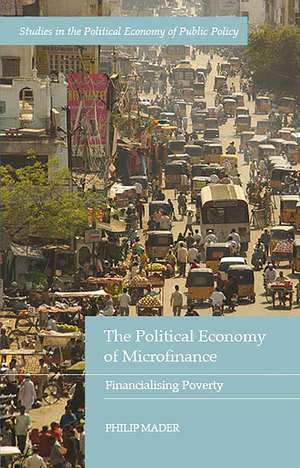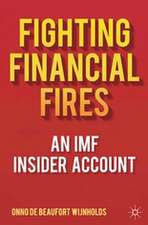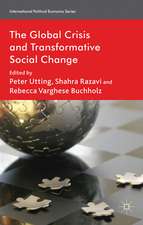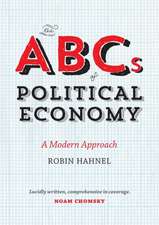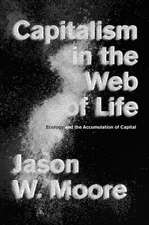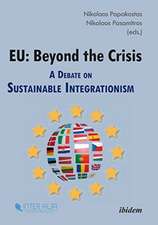The Political Economy of Microfinance: Financializing Poverty: Studies in the Political Economy of Public Policy
Autor Philip Maderen Limba Engleză Hardback – 12 iul 2015
Din seria Studies in the Political Economy of Public Policy
-
 Preț: 219.95 lei
Preț: 219.95 lei -
 Preț: 385.84 lei
Preț: 385.84 lei - 15%
 Preț: 639.25 lei
Preț: 639.25 lei - 15%
 Preț: 698.80 lei
Preț: 698.80 lei -
 Preț: 380.45 lei
Preț: 380.45 lei - 15%
 Preț: 646.94 lei
Preț: 646.94 lei -
 Preț: 394.87 lei
Preț: 394.87 lei -
 Preț: 387.75 lei
Preț: 387.75 lei - 15%
 Preț: 701.25 lei
Preț: 701.25 lei - 18%
 Preț: 1009.08 lei
Preț: 1009.08 lei - 18%
 Preț: 1114.21 lei
Preț: 1114.21 lei - 15%
 Preț: 700.94 lei
Preț: 700.94 lei -
 Preț: 420.25 lei
Preț: 420.25 lei - 18%
 Preț: 889.26 lei
Preț: 889.26 lei - 15%
 Preț: 583.13 lei
Preț: 583.13 lei - 15%
 Preț: 508.75 lei
Preț: 508.75 lei - 15%
 Preț: 497.64 lei
Preț: 497.64 lei - 15%
 Preț: 638.24 lei
Preț: 638.24 lei - 18%
 Preț: 721.19 lei
Preț: 721.19 lei - 18%
 Preț: 780.16 lei
Preț: 780.16 lei
Preț: 783.68 lei
Preț vechi: 955.70 lei
-18% Nou
Puncte Express: 1176
Preț estimativ în valută:
149.98€ • 155.100$ • 123.81£
149.98€ • 155.100$ • 123.81£
Carte tipărită la comandă
Livrare economică 15-29 aprilie
Preluare comenzi: 021 569.72.76
Specificații
ISBN-13: 9781137364203
ISBN-10: 1137364203
Pagini: 284
Ilustrații: XII, 284 p.
Dimensiuni: 140 x 216 x 18 mm
Greutate: 0.49 kg
Ediția:1st ed. 2015
Editura: Palgrave Macmillan UK
Colecția Palgrave Macmillan
Seria Studies in the Political Economy of Public Policy
Locul publicării:London, United Kingdom
ISBN-10: 1137364203
Pagini: 284
Ilustrații: XII, 284 p.
Dimensiuni: 140 x 216 x 18 mm
Greutate: 0.49 kg
Ediția:1st ed. 2015
Editura: Palgrave Macmillan UK
Colecția Palgrave Macmillan
Seria Studies in the Political Economy of Public Policy
Locul publicării:London, United Kingdom
Cuprins
1. A Framework for Engaging Microfinance
2. A Genealogy of Microfinance
3. The Financialisation of Poverty
4. Financialising Public Goods
5. Mechanisms of a Microfinance Crisis
6. At the Crossroads of Development and Finance
7. Appendix
7.1 Calculating the Surplus Extraction
7.2 Projects Using Microfinance for Water and Sanitation
2. A Genealogy of Microfinance
3. The Financialisation of Poverty
4. Financialising Public Goods
5. Mechanisms of a Microfinance Crisis
6. At the Crossroads of Development and Finance
7. Appendix
7.1 Calculating the Surplus Extraction
7.2 Projects Using Microfinance for Water and Sanitation
Recenzii
'Microfinance is financialization dressed up as charity: a pathway for global finance to penetrate the capitalist periphery. In this richly documented book, Mader dispels the myth that debt can move the poor out of poverty. Far from an economics of liberation, microfinance is part of a politics of repression: it extracts more wealth than it creates, and reinforces economic dependence.' - Wolfgang Streeck, Emeritus Professor, Max Planck Institute for the Study of Societies, Germany
Notă biografică
Philip Mader is a research fellow at the Institute for Development Studies, UK. He taught in Basel and studied in Sussex, Cambridge, Cologne, and Harvard. His doctoral thesis, which was written at the Max Planck Institute for the Study of Societies, won the German Thesis Award and the Max Planck Society's Otto Hahn Medal.
